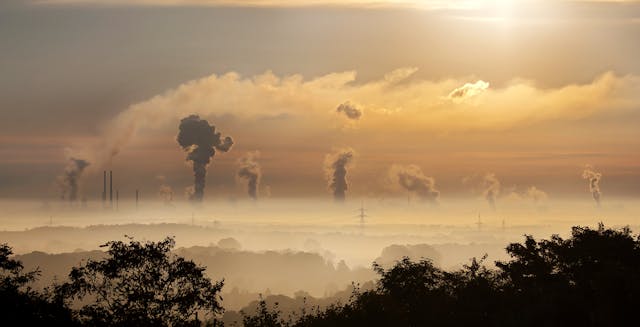Punjab government’s year-round strategy fails, leading to school closures and health warnings as pollution levels soar
The Punjab government faces mounting pressure as Lahore grapples with unprecedented air pollution levels, marking the first year of its commitment to treat smog as a continuous crisis rather than a seasonal occurrence. The shift in policy, which was highlighted in July, has yielded disappointing results. Recently, the Air Quality Index (AQI) in Lahore soared above 1,000 for the first time, prompting the provincial government to close primary schools for grades up to five. This drastic measure aims to protect children, who are particularly vulnerable to the adverse health effects of toxic air.
The hazardous air quality carries pollutants that far exceed the World Health Organisation’s safety standards, posing severe risks including respiratory diseases, strokes, heart disease, and lung cancer. Children’s underdeveloped respiratory systems and their tendency to breathe more rapidly mean they absorb more harmful substances than adults, increasing their risk of long-term health issues.
Despite the government’s attempts to tackle the crisis by addressing various pollution sources, including the smoke emitted from local restaurants, the measures have been deemed inadequate by the Pakistan Air Quality Experts’ Group. This coalition of leading experts, researchers, and medical professionals critiques the government’s strategy as poorly planned and ineffective in addressing the overarching problem of air pollution in Lahore.
Embed from Getty ImagesCompounding the situation is the allegation of cross-border pollution from India. Smoke from agricultural stubble burning and Diwali fireworks has drifted into Pakistan, exacerbating the smog crisis. In response, the Punjab Chief Minister has called for a collaborative effort between the two Punjabs to combat this growing threat, as the WHO warns that ongoing pollution could significantly diminish life expectancy for those living in affected areas.
In light of these developments, the provincial environment minister announced a reevaluation of the existing strategies. This week, the government plans to conduct research and assessments to determine the necessity of further school closures. It represents a crucial moment for the authorities to reflect on past decisions that have led to this severe predicament and to devise more effective long-term strategies.
The situation in Lahore has not arisen overnight; it reflects a long history of neglect regarding the environmental consequences of rapid urbanisation and industrial growth. As the city struggles with its smog crisis, it serves as a cautionary tale for other urban centres in Pakistan. Without immediate and decisive action, millions more may soon find themselves suffocating in polluted air, highlighting the urgent need for comprehensive policies to tackle air quality issues effectively.
